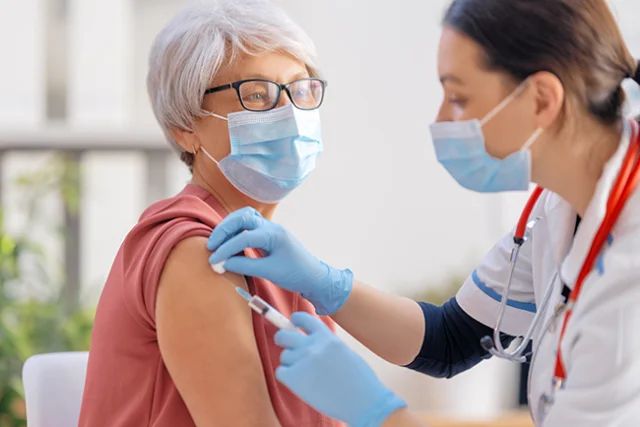
Cut off from Grandkids, Depression Sets in
The purpose of the 2020 restrictions on older people’s activities during COVID – whether voluntary or government enforced – were crucial: keeping them alive as the deadly Delta variant raced through the population worldwide.
But saving lives came at the cost of grandparents’ mental health, according to a study in the Journal of Gerontology: Social Sciences about grandparents in England.
In the scary early months of the pandemic, grandparents cut off or limited interactions with their grandchildren. In England, the grandparents who isolated themselves suffered more mental health problems, including bouts of depression, than the grandparents who maintained the same amount of contact with grandchildren as they’d had before COVID, the researchers found.
This isolation affected grandparents all over the world. American doctors warned older people against mingling with young family members, any of whom might be asymptomatic carriers of the disease. European governments imposed lockdowns or discouraged old and young from getting together. In Israel, the defense minister said, “the single most lethal combination cocktail is when grandma meets her grandchild and hugs him.”
The response by grandparents was echoed in a March 2020 article, “When Can I See my Grandkids?” The COVID-imposed isolation finally gave way to some normalcy after the older population got vaccinated at high rates.
But researchers said the pre-vaccine loneliness had an especially big impact on the grandparents of children under 15 who took the most dramatic step: cutting off all contact with them. Early in 2020, half of the English grandparents who had caregiving duties prior to the pandemic stopped interacting with the children.
The isolation’s negative effects showed up in three measures of mental health: more depression, a lower quality of life, and less life satisfaction. For the grandparents who reduced their interactions but still managed to see grandchildren, the mental health effects were more modest but still present.
The virus continues to circulate, and older people will still need to be careful, especially this winter if the virus surges again in the cold northern regions of the United States.
But the grandparents who are vaccinated and boosted will be freer to interact safely with their families during the holidays. Let’s hope the impact of their isolation is also waning.
Squared Away writer Kim Blanton invites you to follow us on Twitter @SquaredAwayBC. To stay current on our blog, please join our free email list. You’ll receive just one email each week – with links to the two new posts for that week – when you sign up here. This blog is supported by the Center for Retirement Research at Boston College.






